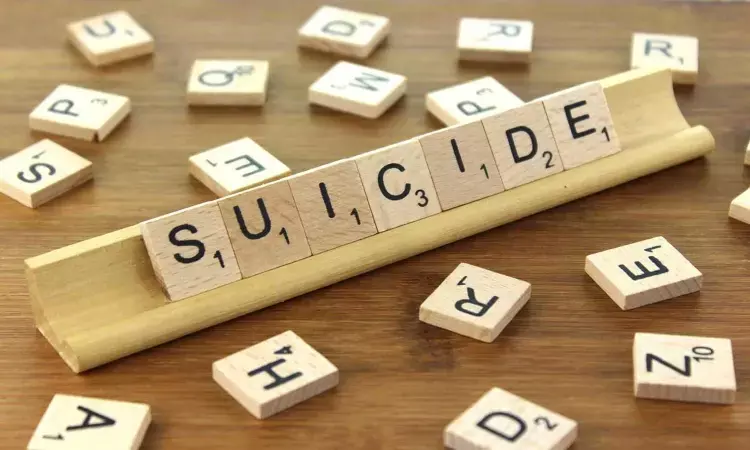- Home
- Medical news & Guidelines
- Anesthesiology
- Cardiology and CTVS
- Critical Care
- Dentistry
- Dermatology
- Diabetes and Endocrinology
- ENT
- Gastroenterology
- Medicine
- Nephrology
- Neurology
- Obstretics-Gynaecology
- Oncology
- Ophthalmology
- Orthopaedics
- Pediatrics-Neonatology
- Psychiatry
- Pulmonology
- Radiology
- Surgery
- Urology
- Laboratory Medicine
- Diet
- Nursing
- Paramedical
- Physiotherapy
- Health news
- Fact Check
- Bone Health Fact Check
- Brain Health Fact Check
- Cancer Related Fact Check
- Child Care Fact Check
- Dental and oral health fact check
- Diabetes and metabolic health fact check
- Diet and Nutrition Fact Check
- Eye and ENT Care Fact Check
- Fitness fact check
- Gut health fact check
- Heart health fact check
- Kidney health fact check
- Medical education fact check
- Men's health fact check
- Respiratory fact check
- Skin and hair care fact check
- Vaccine and Immunization fact check
- Women's health fact check
- AYUSH
- State News
- Andaman and Nicobar Islands
- Andhra Pradesh
- Arunachal Pradesh
- Assam
- Bihar
- Chandigarh
- Chattisgarh
- Dadra and Nagar Haveli
- Daman and Diu
- Delhi
- Goa
- Gujarat
- Haryana
- Himachal Pradesh
- Jammu & Kashmir
- Jharkhand
- Karnataka
- Kerala
- Ladakh
- Lakshadweep
- Madhya Pradesh
- Maharashtra
- Manipur
- Meghalaya
- Mizoram
- Nagaland
- Odisha
- Puducherry
- Punjab
- Rajasthan
- Sikkim
- Tamil Nadu
- Telangana
- Tripura
- Uttar Pradesh
- Uttrakhand
- West Bengal
- Medical Education
- Industry
Start suicide prevention early in schizophrenia spectrum disorder: Study

Toronto -Suicide is a major cause of mortality for individuals with schizophrenia spectrum disorders (SSD).The suicide rate for people with schizophrenia spectrum disorders (SSD) is 170 times higher than the general population according a study just published in the journal Schizophrenia Research, a figure the authors call "tragically high."
The study of 20-years of population data, believed to be the largest of its kind ever done, examined statistics on over 75,000 patients who received a first diagnosis of SSD. On average, each patient was followed for almost ten years. The study found several key factors that were predictors of suicide including:
During the first five years after an individual has been diagnosed with SSD
If there was evidence of a mood disorder or hospitalization prior to diagnosis
If the individual was diagnosed with SSD at a later age
"What this study teaches is us that although people with SSD are at higher risk for suicide, we can target those at the highest risk with changes in policy and treatment," said lead author Dr. Juveria Zaheer, Clinician Scientist at the CAMH Institute for Mental Health Policy Research.
"In the past clinicians have focused on treating the psychosis itself when it first appears," said senior author Dr. Paul Kurdyak, Director, Health Outcomes and Performance Evaluation, CAMH Institute for Mental Health Policy Research and Clinician Scientist at ICES. "This study shows that treatment has to include suicide prevention safety planning as well from the very beginning."
The authors suggest increasing the age limit for admission to first episode psychosis programs (most are closed to people over 30) and increasing the length of clinical follow-up care after a first episode of psychosis.
"Now that we know what is happening, we need to better understand why," said Dr. Zaheer. "Our next step will be to study the lived experience of people with SSD who have had suicidal ideation."
For more details click on http://dx.doi.org/10.1016/j.schres.2020.04.025
Hina Zahid Joined Medical Dialogue in 2017 with a passion to work as a Reporter. She coordinates with various national and international journals and association and covers all the stories related to Medical guidelines, Medical Journals, rare medical surgeries as well as all the updates in the medical field. Email: editorial@medicaldialogues.in. Contact no. 011-43720751
Dr Kamal Kant Kohli-MBBS, DTCD- a chest specialist with more than 30 years of practice and a flair for writing clinical articles, Dr Kamal Kant Kohli joined Medical Dialogues as a Chief Editor of Medical News. Besides writing articles, as an editor, he proofreads and verifies all the medical content published on Medical Dialogues including those coming from journals, studies,medical conferences,guidelines etc. Email: drkohli@medicaldialogues.in. Contact no. 011-43720751


